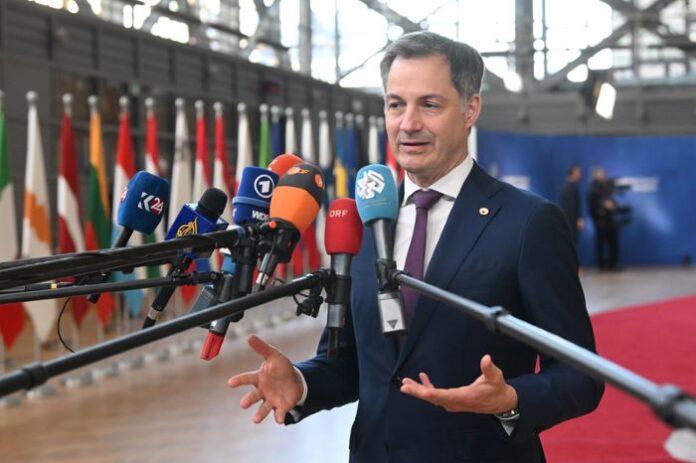Belgium and Czech leaders are urging their European Union partners to help stop Russian interference in June’s EU-wide elections. Intelligence services in the two countries have uncovered evidence attempts by Moscow to bribe EU lawmakers.
“We simply cannot allow Russia to get away with such a blatant attack on our democratic institutions and principles,” Belgium’s Prime Minister Alexander De Croo and his Czech counterpart Peter Fiala declared in a joint letter, as EU leaders met this week in Brussels.
Just the week before, with campaigning for the 6-9 June MEP elections beginning to pick up momentum, De Croo let it be known that Belgium’s intelligence service had verified the existence of a network dedicated to undermining EU support for Ukraine in its war against Russia. Czech authorities, meantime, had imposed sanctions on a number of individuals after uncovering a pro-Russian influence operation there that had allegedly attempted to bribe members of the European Parliament to promote Russian propaganda.
Back in 2016, U.S.intelligence agencies determined that President Vladimir Putin had authorised a subversive campaign to sway the run for the White House in favour of Donald Trump over Democratic challenger Hillary Clinton. The same agencies concluded that Putin authorised similar influence operations in the 2020 U.S. presidential election in a bid to cast doubts on Joe Biden‘s candidacy, boost Trump’s, undermine confidence in the vote and add to social divisions in the country.
De Croo declined to be drawn out about which politicians in Europe might have been bribed, saying that to do so, assuming he knew, could undermine the credibility of everything the Belgian security services have been doing.
Speaking at the leadership summit, the last to be held before the scheduled European parliamentary, the Belgian PM was blunt and to the point. “There is someone who is trying to influence, and there are people who allow themselves to be influenced, and when there is money involved, we must be able to take action.” Money had changed hands outside Belgium, but the political influence was happening within his country, he declared. Belgium currently holds the EU’s rotating presidency.
Both De Croo and Fiala want their EU partners to strengthen the mandate of Europe’s anti-fraud agency and the EU public prosecutors’ office. Acknowledging that not all EU member states had signed up to the prosecutors’ office, the Belgian PM stressed the need for prompt action. “We can’t wait until after the elections to take action when we know that the results might be influenced.”
European Parliament President Roberta Metsola warned summit participants of what he described as “Russia’s attempts to skew narratives and strengthen pro-Kremlin sentiments”. The use of disinformation, he cautioned, was not just a threat, but a real possibility “that we must be ready to counter.”
Elections to fill the European Parliament’s 720 seats are held in all 27 member countries every five years. Disillusioned voters often use the elections as a means of showing dissatisfaction with their respective governments. The European Parliament, the EU’s sole democratically elected institution, is responsible for shaping and deciding legislation that influences the lives of some 420 million people in Europe — laws that range from economic affairs and the fight against poverty, to tackling climate change and boosting security.
Last month, Latvia’s state security service launched criminal proceedings against 73-year-old Latvian MEP Tatjana Ždanoka for alleged Russian ties. According to Russian, Nordic and Baltic news sites, she reportedly had been a Russian Federal Security Service agent since as early as 2004.
Support for Ukraine among EU nations has begun to falter as the war drags on. Hungary, Moscow’s closest European ally, has delayed the delivery of funds to Ukraine and is demanding that peace talks be held.

